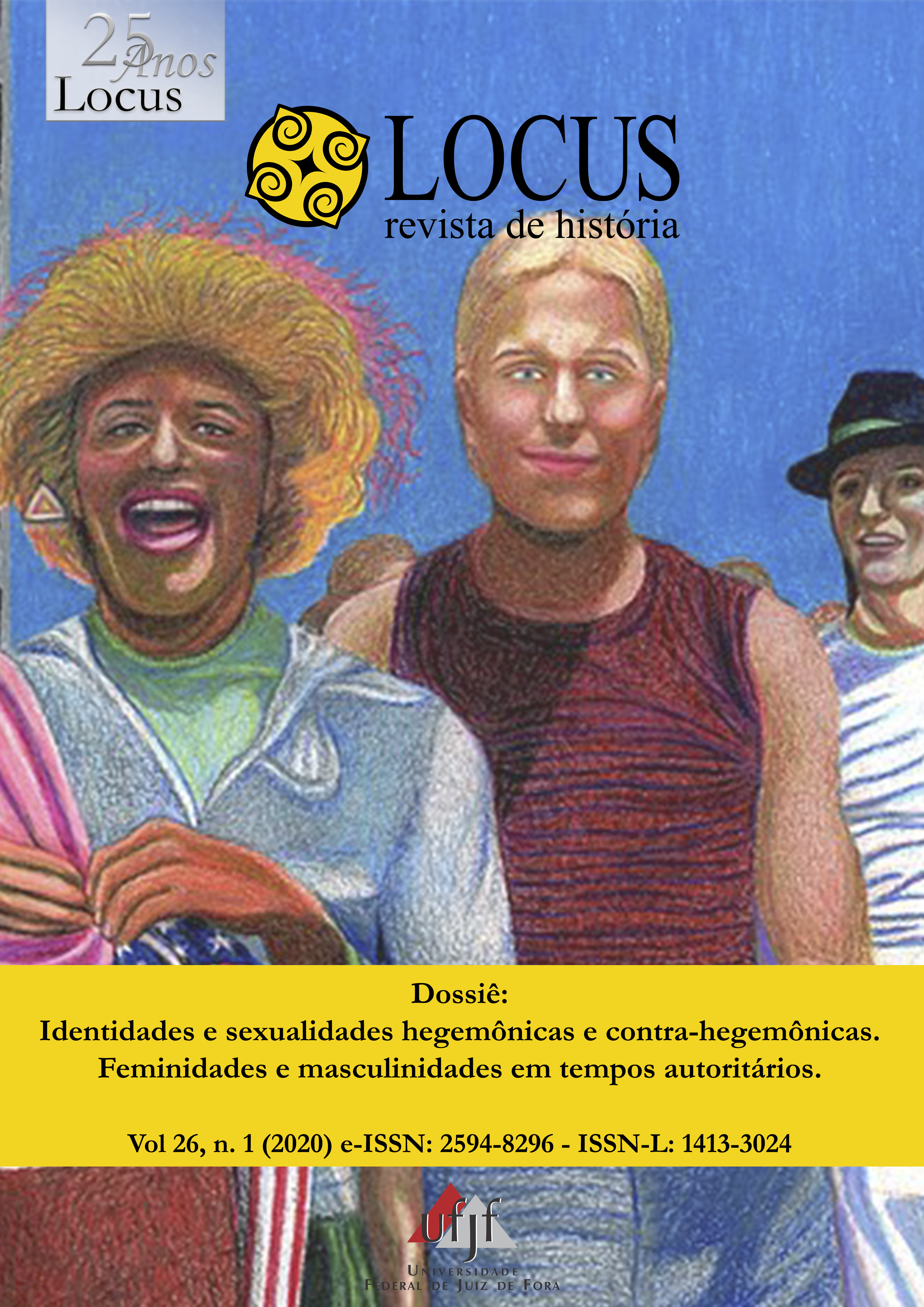An approach to the study of repression of women during the Franco regime from the History of Law: those tried in the Regional Court of Political Responsibilities
Published 2020-04-17
Keywords
- Law of Political Responsibilities,
- Court of Political Responsibilities,
- Sexed repression,
- Women’s history,
- Francoism
How to Cite
Abstract
This article reflects on the necessary study of Franco's repression in the courts from a gender perspective, reading the files beyond law enforcement and looking at those personal circumstances that can lead the court's decision towards acquittal or the criminalization of prosecuted conduct. Circumstances that, on the other hand, can be elements of subversion against gender stereotypes imposed by the Franco regime with the establishment of the New State. It is the responsibility of the historians of the law to analyse the judicial files looking beyond what they related, focusing repression from a gender perspective and, moreover, feminist, that considers the circumstances noted above and which detects the presence of patriarchy and androcentrism as yet a further element of the repression against women (and against the LGBTI collective, although it is not the subject matter of this article). To begin the reflection on the issue at hand, will be analysed of two files held in the Central Archive of the High Court of Justice of Catalonia (TSJC) and the Barcelona Provincial Court (APB) corresponding to the Tribunal Regional Political Responsibilities of Francoism, these being a first approach to the matter, which is expected to be extended in the immediate future. By reviewing the files, a number of doubts has raised about the repression exercised on men and women as to the personal circumstances of the prosecuted persons: Was the repression on men and women equal, regardless of their circumstances of Gender?
Downloads
References
- Abad, Irene, “Las dimensiones de la “represión sexuada” durante la dictadura franquista.” Revista de historia Jerónimo Zurita 84 (2009): 65-86.
- Constenla, Tereixa. “Con un pequeños gemido, basta”, El País, 10 de mayo de 2009. https://elpais.com/diario/2009/05/10/cultura/1241906403_850215.html (Consultado el 24 de enero de 2020).
- De Riquer, Borja, “Francesc Cambó ante el régimen de Franco: El intento de reconstruir la Lliga Catalana (1944-1947).” Historia Contemporánea 13-14 (1996): 289-296.
- Duch, Montserrat, “Una perspectiva de género de la represión concentracionaria franquista a partir del caso de la cárcel de las Oblatas de Tarragona (1939-1943).” Studia Histórica, História Contemporánea 29 (2011): 315-336.
- Gahete Muñoz, Soraya, “La Sección Femenina de Falange. Discursos y prácticas en Madrid.” Arenal 22 Vol.2, (julio-diciembre 2015): 389-411.
- Gómez, Gutmaro y Pérez-Olivares, Alejandro, “Las lógicas de la violencia en la Guerra Civil: balance y perspectivas historiográficas” Studia Historica, Historia Contemporánea Vol.23, (2014): 251-262.
- González, Enrique. Las rapadas. El franquismo contra la mujer. Madrid: Siglo XXI España, 2012.
- Gutiérrez, Esther, La represión sexuada del franquismo, Tarragona: Universitat Rovira i Virgili, 2012.
- Hernández de Miguel, Carlos. Los campos de concentración de Franco. Barcelona: Penguin Hause Grupo Editorial, 2019.
- Ibáñez, Mélanie, “Experiencias compartidas y lazos de parentesco de postguerra” Revista Historia Autónoma 8 (2016): 85-99.
- Ledesma, José Luis, “La “Causa General”: Fuente de la Represión, la Guerra Civil (y el franquismo)” Spagna Contemporanea 28 (2005): 203-220.
- Mir, Conxita; Corretgé, Fabià; Farré, Judit y Sagués, Joan, Repressió económica i franquisme: l’actuació del Tribunal de Responsabilitats Polítiques a la provincia de Lleida, Barcelona: Publicacions de l’Abadia de Montserrat, 1997.
- Núñez Díaz-Balart, Mirta, “El dolor como terapia. La médula común de los campos de concentración nazis y franquistas.” Ayer 57 Vol. I (2005): 81-102.
- Rodrigo, Javier, “Internamiento y trabajo forzoso: los campos de concentración de Franco, Hispania Nova, Revista de Historia Contemporánea 6 (2006).
- Sánchez, Pura. Individuas de dudosa moral. Barcelona: Crítica, 2009.
- Sevillano, Francisco, “Política y criminalidad en el ‘nuevo Estado’ franquista. La criminalización del ‘enemigo’ en el derecho penal de postguerra”, Historia y Política 35 (2016): 289-311. https://doi.org/10.18042/hp.35.12.
- S/A. “Desde la cárcel... Firmes y unidas”. Mujeres antifascistas españolas 1 (1946).
- Valín, Alberto JV, “Francisco Franco, la masonería y la represión”, Minius, VIII (2000): 255-267.
- Vallès, Daniel, “María Soteras: Un ejemplo de la represión sexuada en aplicación de la Ley de Responsabilidades Políticas Franquista”, en La investigación del Derecho con perspectiva de género, coordinado por Maria Jesús Espuny, Daniel Vallès y Elisabet Velo, 417-442. Madrid: Dykinson, 2020.
- Yusta, Mercedes, “Rebeldía individual, compromiso familiar, acción colectiva. Las mujeres en la resistencia al franquismo durante los años cuarenta.” Historia del presente 4 (2004): 63-92.


